
Some traces of Centura left.
The Delta Engine can be configured in several ways. The Delta Engine Properties collects the settings for the behavior and the language tuning options.
The Delta Engine uses a number of built in parsers to analyze source code. A number of properties tabs are used to tell Delta Engine which parser various file extensions shall use. You can add and remove extensions manually if the default setup isn’t fitting your environment.
Parser specific properties are also included on some of these parser tabs.
You start the Properties dialog by clicking the Properties icon or by choosing Properties... from the File menu.

The Properties icon
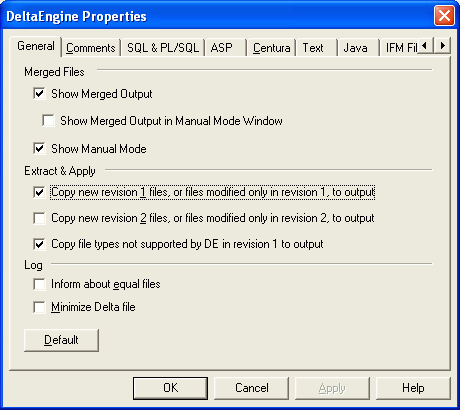
The General properties
Merged Files: You can configure how you want to view the result after a delta is applied, using this option.
Extract & Apply: You can use this section to configure how DE should handle files without matching files in the Extract & Apply Process. You can also configure how to handle files not supported by DE.
Log: This section configures the type of messaged displayed in the log and how you want your delta report.
The Default button will clear any changes you have made and return to the default setup. Observe that there is a Default-button per tab in the properties dialog
In order to provide better DeltaEngine support for Pl/Sql comments certain tags have been created. Tags are described in both Consulting and R&D standards. You should normally not make any changes to these.
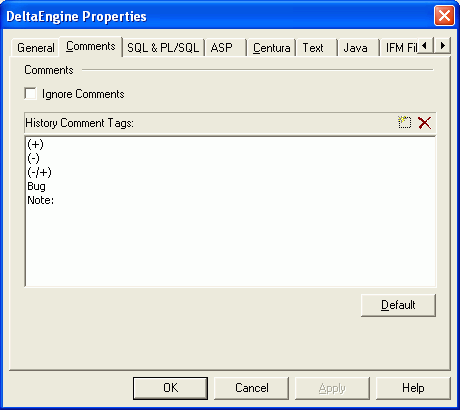
The Comments properties
You can exclude all comments handling by checking the “Ignore Comments” option. The DeltaEngine will then ignore comments in the code as well as changes to the File Header History comments.
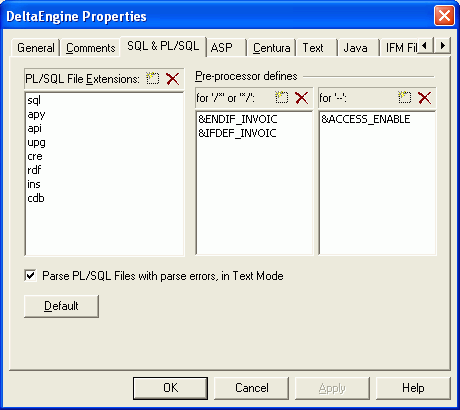
The SQL & PL/SQL properties
Use this tab to define file extensions to be handled by the Sql & Pl/Sql parser.
Pre-processor definitions in PL/Sql files are typically used to control deployment behavior of the file. This could for instance be to ensure that one section of the code is deployed for a Scandinavian customer, and another section for an American customer. These tokens cannot be parsed as part of the PL/Sql programming language, and will therefore give you an error when you attempt to extract the delta from these files. The way around this problem is to tell Delta Engine to ignore these tokens.
The option “Parse PL/SQL Files with parse errors, in Text Mode” tells DE to use the text parser to parse PL/SQL files when a PL/SQL file could not be parsed by the DE parser.
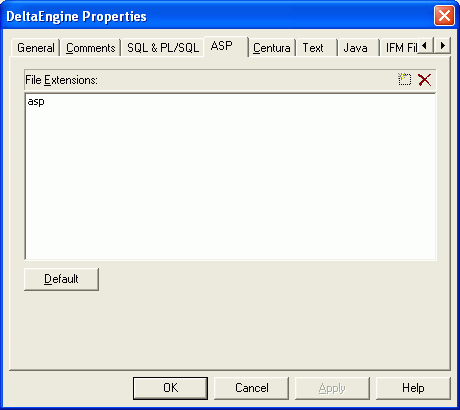
The ASP properties
Use the ASP tab to define file extensions to be handled by the ASP parser.
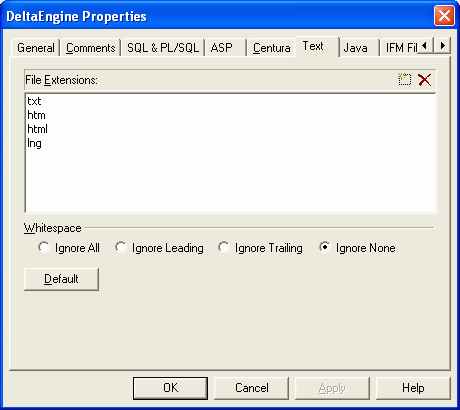
The Text properties
Use the Text tab to define file extensions to be handled by the Text parser. This parser is not programming language specific but can handle any file on the ASCII text format. This parser might be useful when it comes to analyzing differences between files but will not keep up with performance and hit rate (i.e. context problems) compared to the programming language parsers.
Use the Radio buttons to tell Delta Engine how to handle white space in files to be compared with this parser.
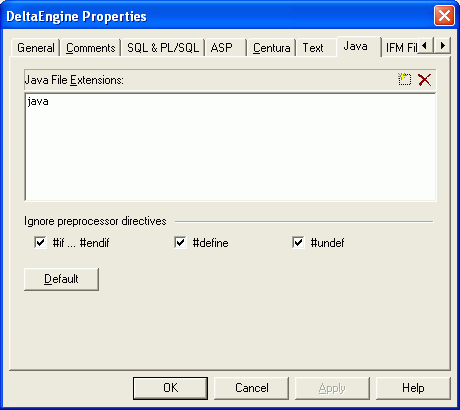
The Java properties
Use the Java tab to define file extensions to be handled by the Java parser.
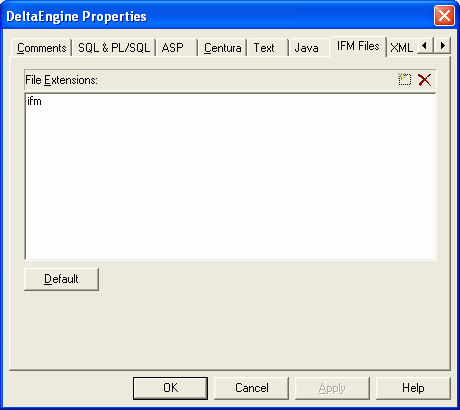
The IFM properties
Use the IFM tab to define file extensions to be handled by the IFM parser. IFM
is a format developed by IFS R&D an is typically used for configuration files etc.
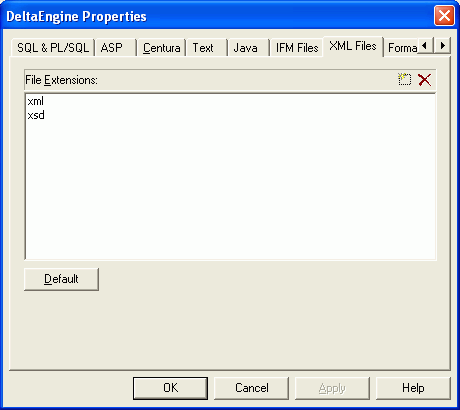
The XML properties
Use the XML tab to define file extensions to be handled by the Java parser.
The format tab allows you to change the color-coding used in Merged Output, Manual Mode and the Delta Report.
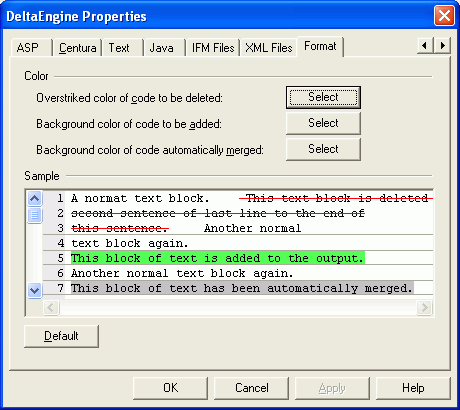
The Format properties
Use the Select button to decide overstrike colour for removed code and background colour for added code and automatically merged code.